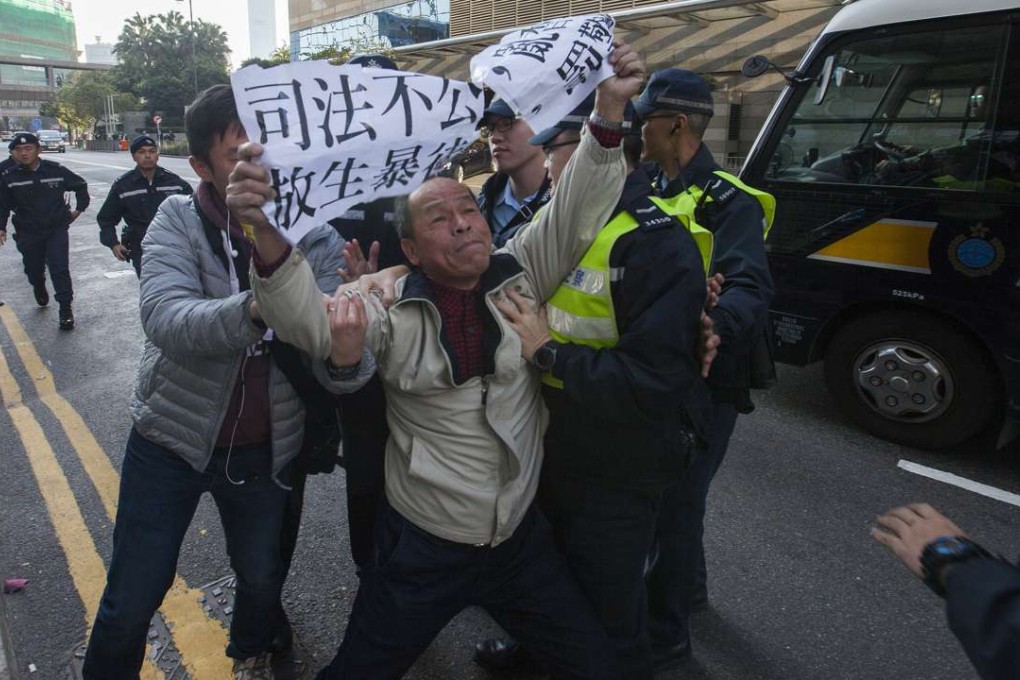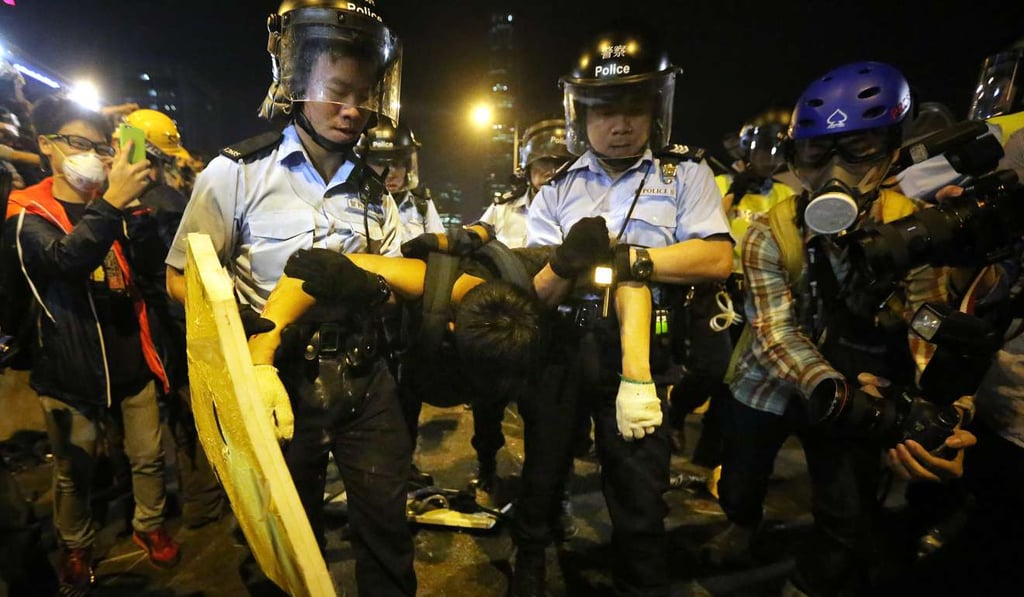Jailing of Occupy police officers highlights flaws in Hong Kong’s judicial system and Basic Law
Tian Feilong says the heavy sentence for police officers executing their duty during a protest movement reflects the problems with Hong Kong’s constitutional set-up. Two decades after the handover, it’s time to fix them

As a consequence, protesters will become even more radical. The excessive punishment for the seven officers, at a time when Hong Kong society is in chaos, has prompted a rethink of the value of the rule of law and how it can support the city. Then there are questions about the nationality of the judge, the rationale behind the ruling, impartiality, and possible political motives behind the ruling.
The case also presents a predicament for the city’s law and order: if there is another Occupy protest, would frontline officers still be reliable and dedicated enough to maintain law and order?
The grievances of our police must be heard if we want an effective force
The court ruling was handed down according to common law methods and arguments about rights. It stresses the rights and freedoms of the protester without equal regard to the discretion which the police could exercise while enforcing the law during a protest. The judge has failed to strike a balance between freedom and order.

Hong Kong’s firm grip on the law in Occupy police assault case is a valuable lesson for the mainland
Social protest movements are extraordinary events. The judge should have differentiated the powers that the police are allowed to use in such situations from those normally allowed. The Occupy protests were unprecedented in Hong Kong, and police were working in an emergency, where there were no comprehensive guidelines to follow. In such situations, frontline officers have to make decisions on the spot about what action to take and how much force is appropriate. How could a judge’s ruling override the professional judgment of officers on the job?
Frontline police officers have to make decisions on the spot about what actions to take and how much force is appropriate